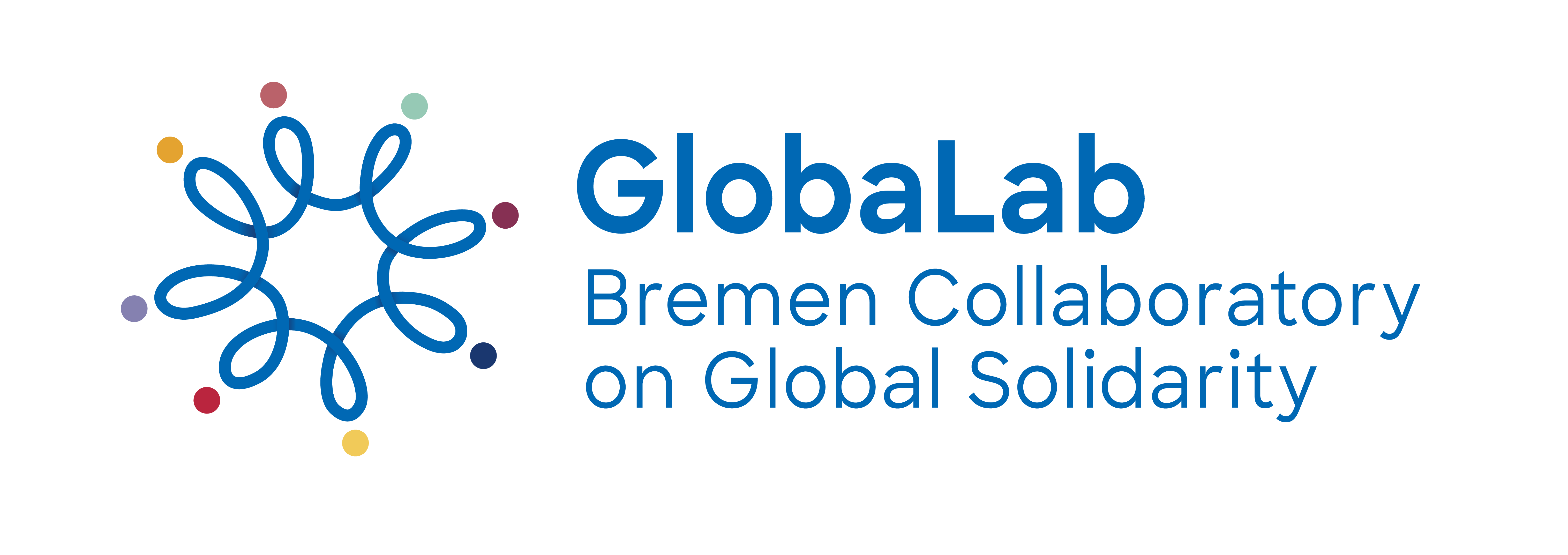Publikationen
Die Forscherinnen und Forscher des GlobaLab haben zahlreiche zentrale Themen der globalen Solidarität analysiert: internationale Zusammenarbeit und Governance, institutionalisierte Solidarität und globale Sozialpolitik, Ungleichheit, Entwicklungshilfe und Migration, gewaltsame Konflikte und Umweltprobleme. Ihre Forschungen erstrecken sich über ein breites Spektrum an geografischen Gebieten und historischen Zusammenhängen und setzen eine Vielzahl von Forschungsmethoden ein.

© Patrick Pollmeier
Blog zur Sozialpolitik in der ganzen Welt
Der Blog „Social Policy Worldwide“ ist ein Forum für Informationen, Austausch und öffentliche Debatten über Sozialpolitik, Ungleichheiten und sozialen Zusammenhalt, das von Socium herausgegeben wird. Hier finden Sie auch Beiträge von Forschern unseres Teams.
mehr- Abbot, K.W., Genschel, P, Snidal, D., & Zangl, B. (2016). Two Logics of Indirect Governance: Delegation and Orchestration. British Journal of Political Science, 46(4), 719–729. DOI: 10.1017/S0007123414000593
- Béland, D., Morgan, K. J., Obinger, H., & Pierson, C. (Eds.) (2021). The Oxford Handbook of the Welfare State (second edition). Oxford University Press. DOI: 10.1093/oxfordhb/9780198828389.001.0001
- Berens, S. (2015). Between Exclusion and Calculating Solidarity? Preferences for Private versus Public Welfare Provision and the Size of the Informal Sector. Socio-Economic Review, 13(4), 651–678. DOI: 10.1093/ser/mwu039[Open Access]
- Cornesse, C., Blom, A. G., Dutwin, D., Krosnick, J. A., De Leeuw, E. D., Legleye, S., Pasek, J., Pennay, D., Phillips, B., Sakshaug, J. W., Struminskaya, B., & Wenz, A. (2020). A Review of Conceptual Approaches and Empirical Evidence on Probability and Nonprobability Sample Survey Research. Journal of Survey Statistics and Methodology, 8(1), 4–36. DOI: 10.1093/jssam/smz041[Open Access]
- Couldry, N., & Hepp, A. (2017). The Mediated Construction of Reality. Polity Press.
- Geng, Y., Sarkis, J., & Bleischwitz, R. (2019). How to Globalize the Circular Economy. Nature, 565(7738), 153–155. DOI: 10.1038/d41586-019-00017-z
- Gessler, T., & Hunger, S. (2022). How the Refugee Crisis and Radical Right Parties Shape Party Competition on Immigration. Political Science Research and Methods, 10(3), 524–544. DOI: 10.1017/psrm.2021.64[Open Access]
- Hertel, F. R., & Groh-Samberg, O. (2019). The Relation between Inequality and Intergenerational Class Mobility in 39 Countries. American Sociological Review, 84(6), 1099–1133. DOI: 10.1177/0003122419885094[Open Access]
- Isabekova, G., & Pleines, H. (2021). Integrating Development Aid into Social Policy: Lessons on Cooperation and its Challenges Learned from the Example of Health Care in Kyrgyzstan. Social Policy & Administration, 55(6), 1082–1097. DOI: 10.1111/spol.12669[Open Access]
- Kaasch, A., & Martens, K. (Eds.). (2015). Actors and Agency in Global Social Governance. Oxford University Press. DOI: 10.1093/acprof:oso/9780198743996.001.0001
- Kern, T. (2009). Cultural Performance and Political Regime Change: The Democratic Transition of South Korea in 1987. Sociological Theory, 27(3), 291–316. DOI: 10.1111/j.1467-9558.2009.01349.x
- Kuhlmann, J., González de Reufels, D., Schlichte, K., & Nullmeier, F. (2020). How Social Policy Travels: A Refined Model of Diffusion. Global Social Policy, 20(1), 80–96. DOI: 10.1177/1468018119888443[Open Access]
- Lersch, P. M., Schulz, W., & Leckie, G. (2020). The Variability of Occupational Attainment: How Prestige Trajectories Diversified within Birth Cohorts over the Twentieth Century. American Sociological Review, 85(6), 1084–1116. DOI: 10.1177/0003122420966324[Open Access]
- Manow, P. (2020). Social Protection, Capitalist Production: The Bismarckian Welfare State in the German Political Economy, 1880-2015. Oxford University Press.
- Marsden, P. V., & Hollstein, B. (2023). Advances and Innovations in Methods for Collecting Egocentric Network Data. Social Science Research, 109, 102816. DOI: 10.1016/j.ssresearch.2022.102816
- Mewes, L., Tuitjer, L., & Dirksmeier, P. (2023, in print). Where are People Aware of Climate Change? Uncovering the Geography of Climate Change Opinions at a fine-grained local Scale. Nature Communications.
- Muehlebach, A. (2023a). A Vital Frontier: Water Insurgencies in Europe. Duke University Press. DOI: 10.1215/9781478024408[Open Access]
- Obinger, H., & Schmitt, C. (2011). Guns and Butter? Regime Competition and the Welfare State during the Cold War. World Politics, 63(2), 246–270. DOI: 10.1017/s0043887111000025
- Rabe, W., & Kostka, G. (2022). China’s Growing Digital Reach: Explaining Citizens’ High Approval Rates of Fintech Investments in Southeast Asia. Review of International Political Economy, online first. DOI: 10.1080/09692290.2022.2044884[Open Access]
- Rennkamp, B., Haunss, S., Wongsa, K., Ortega, A., & Casamadrid, E. (2017). Competing Coalitions: The Politics of Renewable Energy and Fossil Fuels in Mexico, South Africa and Thailand. Energy Research & Social Science, 34, 214–223. DOI: 10.1016/j.erss.2017.07.012[Open Access]
- Sachweh, P. (2018). Conditional Solidarity: Social Class, Experiences of the Economic Crisis, and Welfare Attitudes in Europe. Social Indicators Research, 139(1), 47–76. DOI: 10.1007/s11205-017-1705-2
- Schlichte, K., & Stetter, S. (Eds.). (2023, in print). The Historicity of International Politics: Imperialism and the Presence of the Past. Cambridge University Press.
- Schmidt, S. K. (2018). The European Court of Justice and the Policy Process: The Shadow of Case Law. Oxford University Press. DOI: 10.1093/oso/9780198717775.001.0001[Open Access]
- Süß, D., & Torp, C. (2021). Solidarität. Vom 19. Jahrhundert bis zur Corona-Krise. Dietz.
- Windzio, M. (2018). The Network of Global Migration 1990–2013: Using ERGMs to test Theories of Migration between Countries. Social Networks, 53, 20–29. DOI: 10.1016/j.socnet.2017.08.006

